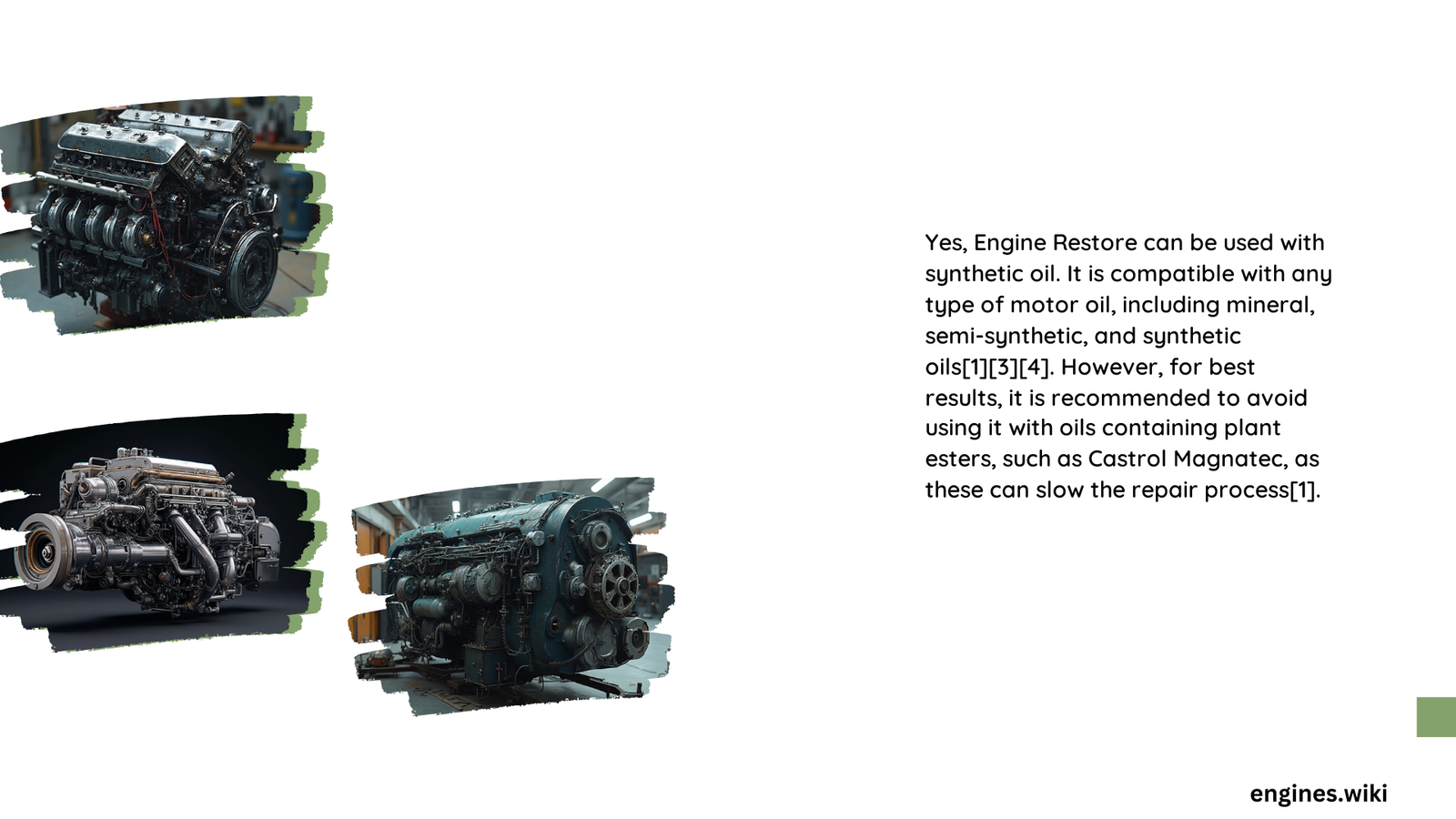Engine restoration with synthetic oil is a nuanced process that requires careful understanding of chemical interactions, engine conditions, and product compatibility. Vehicle owners seeking to improve engine performance through Engine Restore can confidently use the product with most synthetic oils, provided they follow specific guidelines and understand potential limitations in certain high-performance engine configurations.
Can Engine Restore Effectively Work with Synthetic Oils?
Engine Restore demonstrates remarkable compatibility with synthetic oils, offering vehicle owners a potential solution for addressing engine wear and performance degradation. The product’s unique Ceramic Sealant Layer (CSL) technology enables micro-leak sealing across various oil types, including synthetic formulations.
What Makes Synthetic Oil Interaction Unique?
| Oil Type | Compatibility | Recommended Approach |
|---|---|---|
| Mineral Oils | Full Compatibility | Direct Application |
| Semi-Synthetic Oils | Excellent Interaction | Standard Procedure |
| Full Synthetic Oils | Compatible with Cautions | Careful Monitoring |
Key Compatibility Factors
- Chemical Composition: Synthetic oils vary in molecular structure
- Additive Interactions: Some plant-based ester oils may slow restoration
- Viscosity Considerations: Consistent performance across different grades
How Does Engine Restore Perform with Synthetic Oils?
Performance metrics for Engine Restore with synthetic oils include:
- Compression Restoration
- Balances cylinder compression
- Reduces engine noise
-
Improves overall engine performance
-
Leak Sealing Capabilities
- Fills microscopic cylinder wall imperfections
- Reduces oil consumption
- Minimizes exhaust smoke
What Precautions Should Users Take?
Users must consider several critical factors when applying Engine Restore to synthetic oil systems:
- Avoid oils containing plant esters
- Reduce oil volume by half-quart
- Use recommended treatment ratios
- Initial treatment: 10% Engine Restore
- Subsequent treatments: 5% at each oil change
Who Benefits Most from Engine Restore?
Ideal candidates for Engine Restore include:
- Vehicles with over 50,000 miles
- Engines experiencing performance degradation
- Cars with minor compression loss
- Vehicles using standard synthetic motor oils
What Are Potential Limitations?
Potential challenges include:
- Incompatibility with high-pressure valve timing systems
- Limited effectiveness in severely damaged engines
- Potential interference with complex engine management systems
Expert Recommendations

Professional mechanics suggest:
- Thoroughly clean the engine before application
- Change oil filter simultaneously
- Monitor engine performance post-treatment
- Use reputable synthetic oil brands
Conclusion
Engine Restore demonstrates significant potential when used with synthetic oils, offering a cost-effective solution for minor engine restoration. However, users should approach the process methodically and understand their specific engine requirements.
